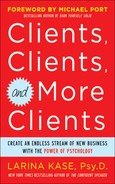Know Your Audience
,As with any form of communication, credibility is in the eye of the beholder. Knowing your user influences the way that you say things. If you’re a professional speaker, for instance, your text should speak to the person who would hire you, such as meeting planners rather than the audience members.
Experts see things differently
Stanford Persuasive Technology Lab also ran a study on experts’ perceptions of credibility. Experts in health and finance rated five pairs of Web sites in their fields. They were given 30 items, asked to rate how much each variable impacted the credibility of the site, and given an optional area to add comments. Interestingly, experts rated credibility very differently than consumers did. Here’s how it broke down:
Health Experts’ Ratings of Credibility
Name/reputation/affiliation: 43.9 percent
Information source: 25.8 percent
Company motive: 22.7 percent
Information focus: 19.7 percent
Advertising: 13.6 percent
Design look: 7.6 percent
Health experts were most impacted by the source of the information. For example, the Mayo Clinic site was viewed as highly credible. A strong sales focus hurt credibility, but a site could be for-profit without damaging credibility. Experts were wary of flashy design and strong (e.g., “proven”) unsubstantiated language.
Finance Experts’ Ratings of Credibility
Information focus: 40.3 percent
Company motive: 35.8 percent
Information bias: 29.9 percent
Design look: 16.4 percent
Information design: 13.4 percent
Name/reputation/affiliation: 10.5 percent
The most important aspect to the finance experts was the quality of information provided. They valued a breadth of unbiased information presented in a very clear manner. Like health experts, they were wary of flashy design and strong language.
Are you marketing to clients, experts, or both?
Be clear about the answer to this question as you meet new people. Depending on your target clients and referral partners, some may have greater subject matter expertise than others. Often referral partners are other professionals with expertise in your or a related field.
You may need to create different marketing materials for different audiences. David, a search engine optimization consultant, often received referrals from Web site coders and developers. These technical experts spoke a very different language from his clients, business owners who were looking for help being found on the Web. Because each audience would look for different information in determining whether or not David’s site was credible, he created different mini-sites for different audiences. He determined that information focus would be important to both, but he varied the type of information provided for his technical colleagues who referred to him versus his clients.
